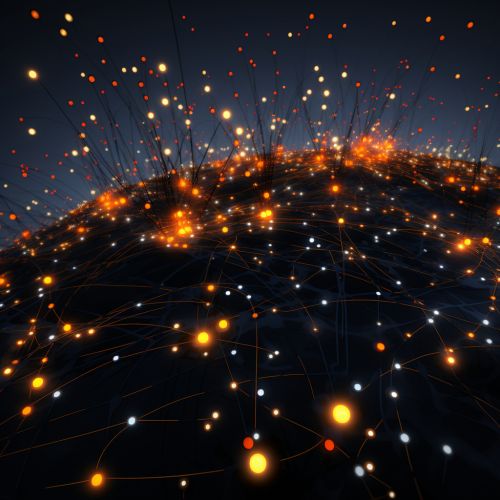Agent-Based Model
Introduction
An Agent-Based Model (ABM) is a computational model for simulating the actions and interactions of autonomous agents (both individual or collective entities such as organizations or groups) with a view to assessing their effects on the system as a whole. It combines elements of Game Theory, Complex Systems, Emergence, Computational Sociology, Multi-Agent Systems, and Evolutionary Programming. Monte Carlo Methods are used to introduce randomness. Particularly within ecology, ABMs are also called individual-based models, and individuals within IBMs may be simpler than fully autonomous agents within ABMs. A review of recent literature on individual-based models, agent-based models, and multiagent systems shows that ABMs are used on non-computing related scientific domains including biology, ecology and sociology.


History
Agent-based modeling is related to, but distinct from, the concept of Microsimulation, a term that originated in the late 1950s. Microsimulation was initially focused on human systems such as public policy initiatives. Agent-based modeling has since expanded to incorporate elements from biology and physics, among others, and is used to examine complex systems in the natural and social sciences.
Methodology
Agent-based models are a kind of microscale model that simulate the simultaneous operations and interactions of multiple agents in an attempt to re-create and predict the appearance of complex phenomena. The process is one of emergence, which some express as "the whole is greater than the sum of its parts". In other words, higher-level system properties emerge from the interactions of lower-level subsystems. Or, macroscopic state changes emerge from a critical mass of microscopic state changes. The systems from which such emergence occurs are typically characterized as complex and adaptive.
Agent Design
The idea of "agent" is certainly core to agent-based models. But there is considerable variation in how agents can be conceptualized. Some researchers consider agents to be "like cells in a cellular automata" that have state and rules of behavior or transition. Others emphasize that agents are "situated" in a space and have behaviors that are more complex, with elements of learning and adaptation. Still others would insist that unless the agents are "autonomous, purposive and adaptive," the model is not truly an agent-based model.
Applications
Agent-based models have many applications, notably in the study of economic systems, ecological systems, and in the study of social complexity. They are also used in various fields such as biology, ecology, economics, artificial intelligence, computer science, political science, and sociology.
